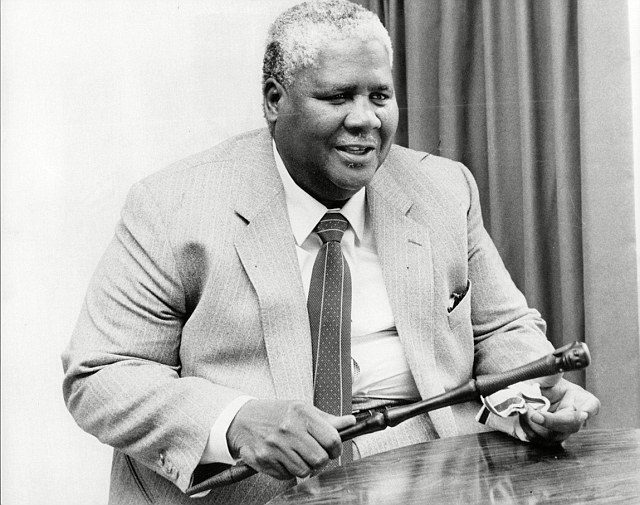
VILLAGERS in Mafa, Lupane, have reportedly discovered remains of suspected Gukurahundi victims, a development which they say rekindles the pain and vagaries of the government-sponsored killings, which saw over 20 000 people losing lives in Matabeleland and Midlands provinces.
BY SILAS NKALA
In August 2011, parents, teachers and pupils discovered human remains emerging from the ground close to classroom blocks at Silwane Primary School in Lupane.
Lupane is one of the districts that bore the brunt of the Gukurahundi massacres, perpetrated by the North Korean-trained Fifth Brigade, which targeted mostly supporters of PF Zapu, then led by the late Vice-President Joshua Mqabuko Nkomo.
 The late Vice-President Joshua Mqabuko Nkomo
The late Vice-President Joshua Mqabuko Nkomo
Mthwakazi Republic Party (MRP)’s Lupane district organising secretary, Lungani Ndabezitha Luphahla yesterday said party officials visited Mafa Village on Saturday at the invitation of villagers, who showed them the human remains discovered in a mass grave.
“MRP’s officials visited Lupane’s Mafa village and this is what they got. Though Gukurahundi took place in the 1980s, even today it is still fresh to the people as they continue to discover remains of relatives who disappeared during those years,” he said.
Luphahla said Mafa villagers were still being affected by the genocide, deducing from the human remains, which continued to be discovered by the villagers.
- Chamisa under fire over US$120K donation
- Mavhunga puts DeMbare into Chibuku quarterfinals
- Pension funds bet on Cabora Bassa oilfields
- Councils defy govt fire tender directive
Keep Reading
“Almost each rain season, the bones of our people killed by the Fifth Brigade are being discovered in some parts of Lupane.
“Mafa villagers started discovering these remains in 2008 and they are always donating cement for tombstones and plastering of these Gukurahundi graves,” Luphahla said. He said the bones always surfaced during the rain season because the remains were buried in shallow graves.










